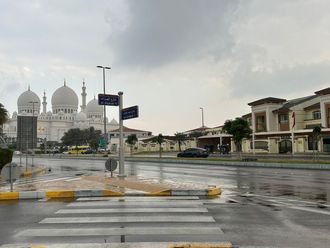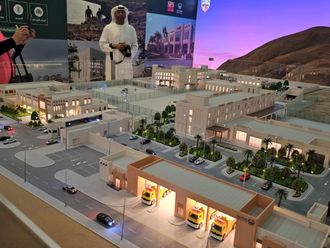
Dubai: As part of the World Governments Summit (WGS) 2024, set to take place from February 12-14, the second Future of Education Forum (FEF) will be held to explore reshaping of learning techniques and honing student skills for the future workplace.
The forum, themed ‘The Future of Education — Education re-imagined,’ will be organised by the Ministry of Education on February 14, bringing together a diverse group of government officials, education specialists, global experts and academics.
Dr. Ahmad Belhoul Al Falasi, Minister of Education, said the FEF will explore both traditional and modern education approaches, focusing on reimagining the foundations of education at all levels. The goal is to create advanced and modern education systems that meet future needs, offering comprehensive learning experiences. This will empower students to access knowledge from diverse sources, improve their practical skills and broaden their knowledge.
Social changes
Dr. Al Falasi said: “The education sector, like other sectors, is witnessing rapid changes driven by technological advancements and social and economic changes. Education systems must be proactive, effective and capable of equipping students with future-focused skills and knowledge. We should also enhance teaching methods to suit current and future requirements. That said, one of the main themes of this year’s edition of the World Governments Summit was devoted to discussing the future of education, which is the focus of FEF. The forum will host global prominent educational leaders and specialised academic experts to reimagine the future of education.”
FEF will feature seven sessions, including high-level meetings, discussions and workshops, with over 50 speakers and 300 education specialists taking part.
Redefining higher education
Education ministers and higher education leaders from all over the world will join a high-level roundtable focused on redefining higher education. Additionally, His Excellency Dr. Al Falasi will have a fireside chat with Ahmed El-Ghandour, Founder of Da7ee7 (The Nerd), on the importance of edutainment in encouraging youth to learn, and the means of making sciences appealing to youth, while ensuring accuracy. The goal is to encourage youth to access trustworthy information to expand their knowledge on topics they are passionate about.
As part of FEF, the MoE is hosting global panel discussions. The first one, titled ‘Factory Model Schools’ will explore the importance of alternative learning approaches like vocational training and digital education in honing students’ skills. It will also address the need to improve traditional education systems, emphasising personalised learning experiences for individual student needs. Furthermore, the session will highlight the significance of upskilling teachers to play a vital role in shaping educational models and improving outcomes.
Classroom to Boardroom
The second session, titled ‘Classroom to Boardroom: Entrepreneurship as an Unconventional Teacher’, will explore the role of formal education in fostering entrepreneurship among students, highlight experiential learning’s value outside traditional settings, as well as review strategies for integrating entrepreneurial experiences into formal education systems. The goal is to contribute to equipping future generations with flexibility and innovative thinking to help build a better tomorrow.
During the second FEF, there will be a workshop focused on the Policy framework for AI in Education, as AI evolves from theory to practical use. This workshop will analyse policies and initiatives used by countries and educational institutions to adopt AI in education. Participants will then make recommendations to identify the most prominent risks associated with embedding AI in education.
Two sessions will also be held during the FEF in cooperation with the ‘Digital School’; the first is titled ‘Empowering Communities through Digital Learning’ and the second is titled ‘Digital Education Roadmap in the SADC Region’.
Six main themes
The WGS 2024 agenda will focus on six main themes: Government Acceleration and Transformation, Artificial Intelligence and The Next Frontiers, Reimagining Development and Future Economies, Future Societies and Education, Sustainability and The New Global Shifts as well as Urbanisation and Global Health Priorities.
Over 200 speakers, more than 120 government delegations, and over 85 international, regional and intergovernmental organisations will participate in WGS 2024. Additionally, over 120 interactive sessions and workshops, 15 forums and more than 23 ministerial meetings and roundtables will be organised.











